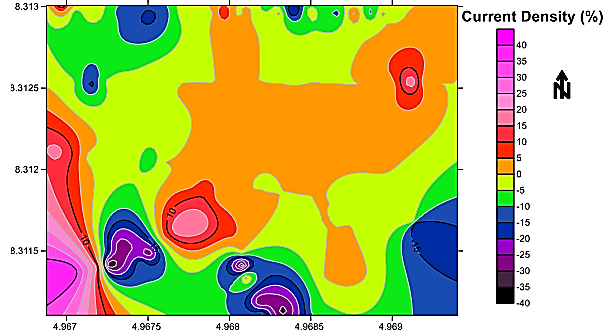Identification of tantalite mineralization zones in Igbonla area, North-Central Nigeria using very low frequency electromagnetic (VLF-EM) techniques
Keywords:
Tantalite, Mineralization, VLF-EM, Igbonla, Conductive Zone, Intermediate Zone, Non-Conductive ZoneAbstract
The identification of potential tantalite mineralization zone became very crucial due to its technological uses to improve economic growth of Nigeria. The study aims to give researchers and government agencies a comprehensive perspective of the subsurface using Very-Low Frequency Electromagnetic (VLF-EM) survey to identify possible tantalite mineralization zones within Igbonla, Kwara state. The methodology involved conducting a VLF-EM survey using ABEM WADI VLF receiver. The data collected was processed and analyzed to delineate the presence of tantalite using KHFFLIT software. The results of the study indicate the presence of three different fracture zones generally identified based on generated 2-D map of current density and are prominently oriented in the NW-SE direction. The first zone is the conductive zone which is characterized by a high current density values ranging from 15 to 40 %. This could be potential tantalite mineralization zone. The second zone is the Non-conductive zone which is characterized by a very low current density, with negative values ranging from -5 to -40. This zone could be attributed to sulphide or aquifer. The third zone is the intermediate zone with a current density ranging 14 to -4 %. The areas with high VLF responses indicate probable mineral veins over the study area. These zones could as well be studied further for potential mineralization. The results indicate that VLF-EM survey has successfully identified anomalies potentially associated with tantalite mineralization.


